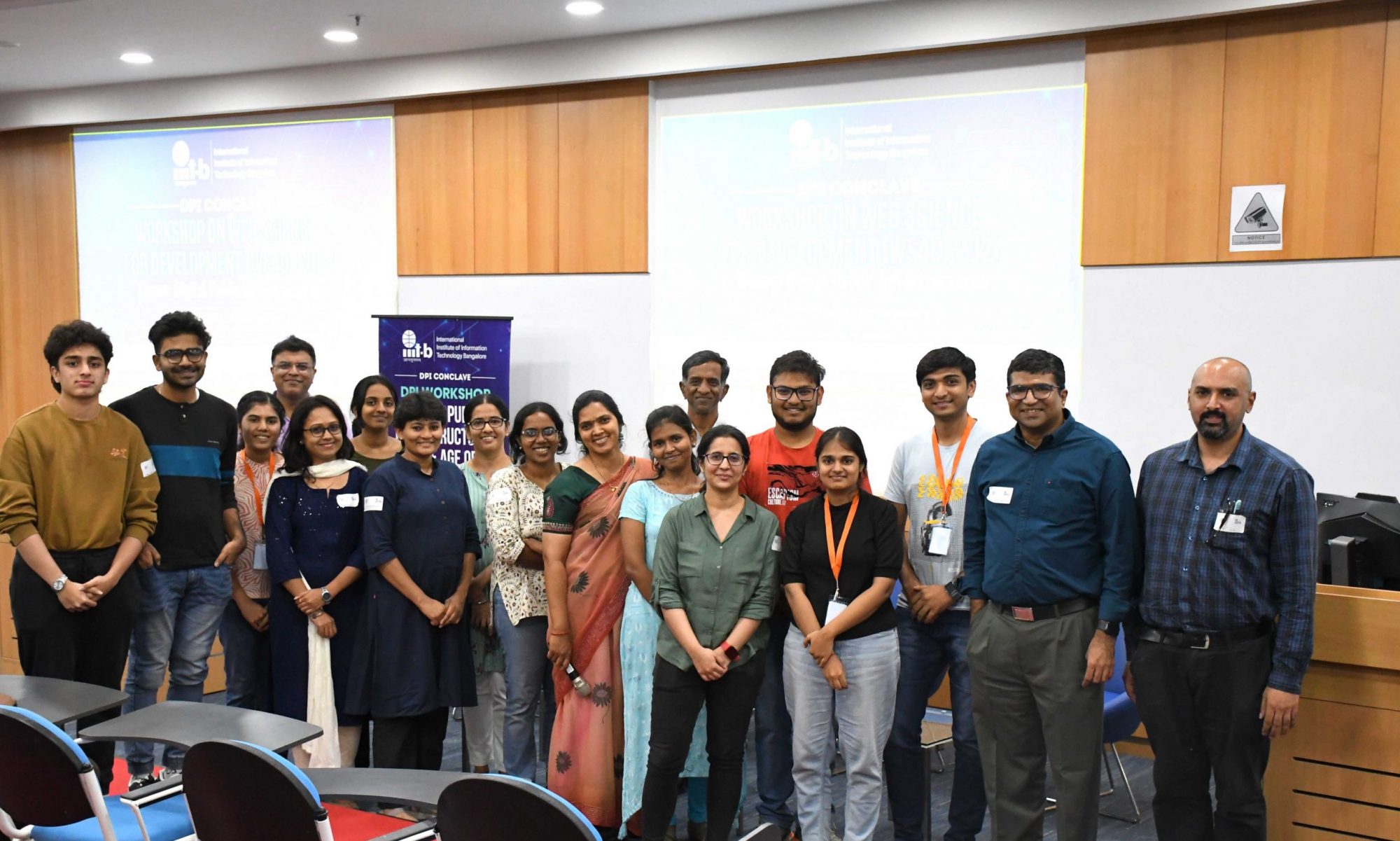WebSciX India
WebSciX India is a proposed satellite event of the ACM Web Science Conference, dedicated to advancing the interdisciplinary study of the Internet, World Wide Web (WWW), and Artificial Intelligence (AI) and their impact on human lives in India and surrounding regions. WebSciX builds upon the Web Science for Development (WS4D) series of events conducted in India since 2019.
Web Science integrates disciplines such as computer science, sociology, economics, and policy studies to explore the socio-technical dynamics of digital ecosystems. WebSciX India aims to build a regional community of experts to investigate these dynamics within India’s unique socio-cultural, economic, and technological context, proposing innovative technologies and interventions to address local challenges.
With over 800 million Internet users as of 2025, India’s digital landscape is shaped by its 1.4 billion population, diverse cultures, and rapid technological adoption. India has also made great strides in innovative use of these technologies including digital identity, payments, technology enhanced education, and a host of web enabled services offered by the state and private players. However, challenges like digital divides, misinformation, and privacy concerns remain, demanding localized Web Science approach.
In this backdrop, WebSciX India will:
- Address region-specific issues such as multilingual content, rural connectivity, and digital literacy.
- Examine AI and Web impacts on key sectors like commerce, education, and public services.
- Propose inclusive and scalable interventions for equitable digital access.
Objectives
The key objectives of WebSciX India are:
- Community Building: Establish a regional network of interdisciplinary experts, including researchers, technologists, social scientists, and policymakers, to study the impact of the Internet, WWW, and AI in India
- Localized Research: Promote research addressing India-specific issues, such as Digital Public Infrastructure (DPI), digital inclusion, misinformation, data privacy, and AI’s socio-economic implications.
- Innovative Solutions: Develop technologies, policies, and frameworks to tackle challenges and leverage opportunities in India’s digital ecosystem.
- Global-Local Integration: Connect global Web Science research with India’s priorities to ensure impactful and relevant outcomes.
Target Audience
WebSciX India engages with the following stakeholders:
- Academics and Researchers: From computer science, sociology, anthropology, economics, and policy studies.
- Technologists and Industry Experts: Working on AI, Web and mobile platforms, and digital infrastructure.
- Policymakers and Regulators: Shaping digital governance and policies.
- Civil Society and NGOs: Focused on digital inclusion, privacy, and societal well-being.
- Students and Researchers: Interested in interdisciplinary Web Science studies.
Expected Outcomes
The following is a non-exhaustive list of expected outcomes from this initiative:
- Research Collaboration: Formation of interdisciplinary research groups focused on India’s digital challenges.
- Knowledge Repository: Publication of proceedings with research papers and policy briefs.
- Community Network: Establishment of a WebSciX India community, potentially hosted on platforms like X or dedicated forums.
- Actionable Interventions: Proposals for technologies and policies addressing digital inclusion, misinformation, and ethical AI use.
- Global Contribution: Strengthened representation of India in the global ACM Web Science Conference.
Call to action
WebSciX India invites researchers, technologists, policymakers, and civil society to join this initiative to shape the future of Web Science in India. By fostering interdisciplinary collaboration and contextual research, WebSciX India seeks to ensure that the Internet and AI empower and uplift communities across India and beyond.

